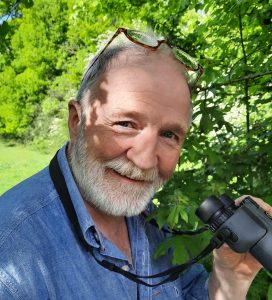In advance of our AGM to be held at our main meeting this coming Friday 25th from 2.30pm, please see the Agenda, 2024 AGM minutes and this year’s accounts below for your information.
AGENDA
- To receive the Chairman’s Report
- To approve the Minutes of the 2024 AGM (below)
- To receive the Treasurer’s Financial Statement
- To elect Officers and Committee members for 2025-2026
(The following will be nominated:
Chairman – Pete Coe; Vice-Chairman and Secretary – David Bettiss; Treasurer – Colin Annis. Other Committee members – Jane Hayman, Graham Tuppen, Stephen Abbott, Julie Wallace, Michael Pritchard, Ed Miller).
Other nominations are welcome.
- Any other business
David Bettiss (Secretary)
MINUTES OF THE ANNUAL GENERAL MEETING HELD ON 26 APRIL 2024
- David Bettiss opened the AGM with a review of the year’s activities. It had been a good year for meetings, visits, walks and practical conservation work. All activiities had been well supported and membership was still high and approaching 900. He thanked all Committee members for their work during the year and looked forward to a full programme for 2024/25.
- The minutes of the April 2023 AGM were agreed.
- The Treasurer’s report was accepted with thanks . There was an underspend of £79.56 23/24 financial year with a balance of £4820.77
- The following were nominated, and elected, as follows: Chairman – Pete Coe; Vice-Chairman and Secretary – David Bettiss; Treasurer – Colin Annis.
Committee members: Chris Green, Jane Hayman, Graham Tuppen, Diana Howard.
- There was no other business, and the AGM was closed.
Ed Miller (Secretary)
Accounts audited week beginning 31.03.2025
FCG Accounts for 1 April 24 – 31 March 25
Income
Subscriptions 1840.00
Talk entry 1311.00
Donations 491.20
Social Tkts. & Sales 719.00
Christmas Card Sales 602.50
Outing – Boat Trip 731.00
—————
£5694.70
Expenses
Speaker Fees 723.80
Tea Provision 236.63
Card Printing 342.00
Hall Hire 454.75
Web Site 104.40
Insurance 134.40
Bank Charges 108.21
Magazine Printing 1554.40
Stationery 38.97
Social 743.40
Outing – Boat Trip 705.00
Various : Wreath 20.00
Equipment 49.39
Water Testing 37.20 £221.68
Plants 100.09
Christmas Tree 15.00
Donations: St Barnabas 250.00
Gifts 25.60 £350.60
Sea Scouts 25.00
CPRE Sussex 50.00
————–
£5718.24 Therefore overspend for year £23.54
Balance @ 1.4.24 £4820.77 @ 31.3.25 £4797.23

